Treatment of Breast cancer
Best hospitals and doctors for breast cancer treatment abroad
Leading hospitals
Cost for treatment
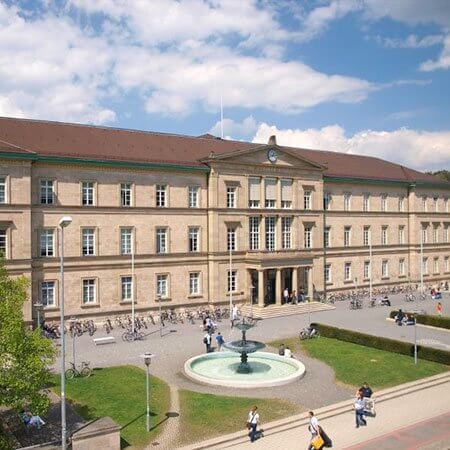



























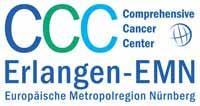







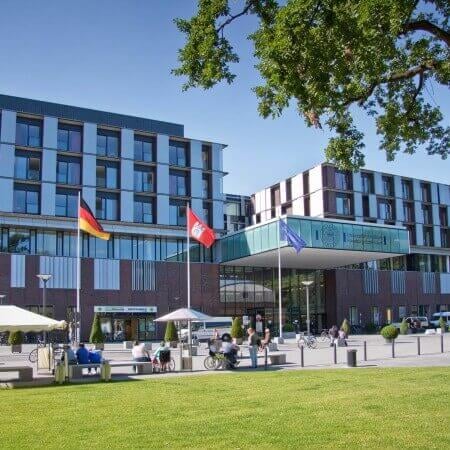





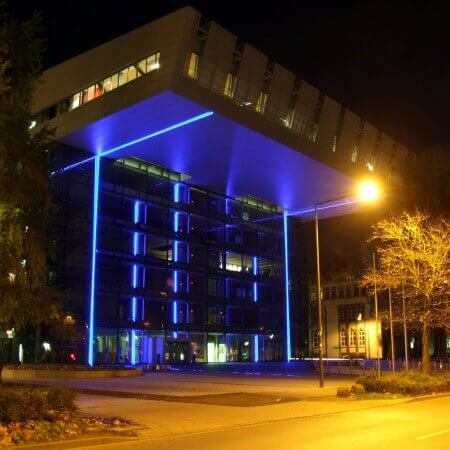





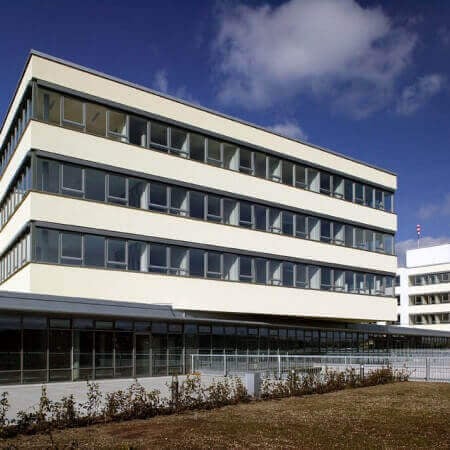











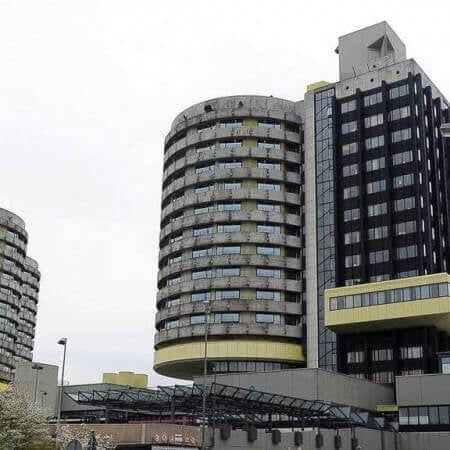






















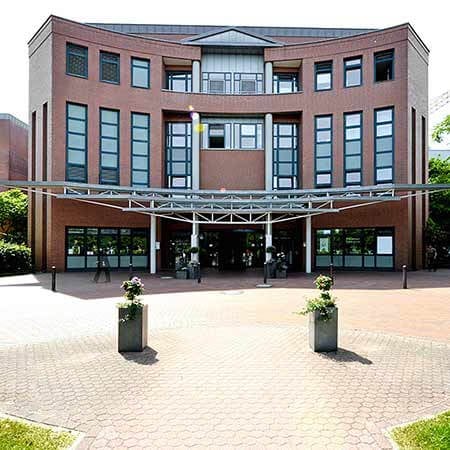
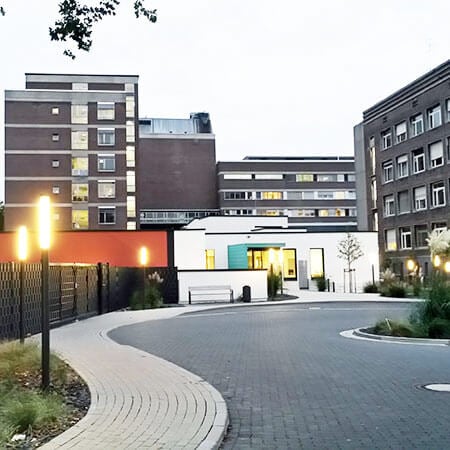


Most tumors that arise in the breasts are benign and not considered dangerous. Their cells do not differ significantly from healthy ones, and they do not interfere with functioning of the organs or spread to distant body parts.
Breast cancer develops due to atypical molecular changes that regulate normal cell growth. Malignant cells multiply uncontrollably, so over time they can overgrow the original localization and spread to surrounding healthy tissues and distant organs.
Content
- Stages of breast cancer
- Factors influencing the treatment and prognosis
- Surgery
- Chemotherapy
- Radiation therapy
- Stage 4 breast cancer treatment options
- Clinical trials
- Best hospital for breast cancer treatment abroad
- Prices for treatment abroad
- Why undergoing treatment with Booking Health?
Early signs of breast cancer may include a new lump or mass in the breast or underarm area, changes in breast size or shape, skin changes such as dimpling or puckering, nipple changes such as inverted nipples or discharge, and breast pain.
Treatment options for breast cancer depend on the stage and type of cancer, and may include surgery, chemotherapy, radiation therapy, hormonal therapy, targeted therapy, immunotherapy, or a combination of these treatments.
Yes, breast cancer can be detected early through regular breast self-exams, clinical breast exams by healthcare professionals, and screening tests such as mammograms. Early detection can improve treatment outcomes and survival rates.
Breast cancer treatment can be effective, especially if the cancer is diagnosed in its early stages. The effectiveness of treatment depends on factors such as the stage of the cancer, the type of tumor, and the response to treatment.
Risk factors for developing breast cancer include age, family history of breast cancer, inherited gene mutations such as BRCA1 and BRCA2, personal history of breast cancer or certain non-cancerous breast diseases, hormone replacement therapy, alcohol consumption, obesity, and radiation exposure.
Stages of breast cancer
Stage 1 and 2 breast cancers are called early-stage or localized cancers. At the first stage, a tumor is less than 2 cm in diameter and doesn't affect the lymph nodes. At the second stage, the tumor spreads to the axillary lymph nodes and/or the tumor is larger than 2 cm (up to 5 cm).
Stage 3 breast cancer is also called locally advanced cancer. It is characterized by a large tumor (more than 5 cm in diameter), metastasizing to the axillary lymph nodes, the involvement of intramammary, supra- and subclavian lymph nodes. At this stage, the tumor may invade the muscle tissue under the breast.
Inflammatory breast cancer is a fast-growing type of tumor that causes redness and inflammation of the breast. It is classified as stage 3 breast cancer, even if the tumor is small and the lymph nodes are not affected.
At stage 4 breast cancer, the tumor metastasizes to distant organs (bones, lungs, liver, etc). In this case, the size of the initial tumor and the degree of damage to the lymph nodes aren’t the important criteria.
Factors influencing the treatment and prognosis
Today, breast cancer treatment is personalized. It depends not only on the stage but also on the biological subtype of cancer.
Tumors that express sex hormone receptors and do not express HER2 (human epidermal growth factor receptor 2) have a more favorable clinical course. These tumors tend to respond well to hormone therapy and have better prognosis.
Triple negative breast cancer is a tumor with no receptors for hormones and HER2. As a rule, in these tumors, cells are dividing very quickly. Triple negative breast cancer has the most unfavorable prognosis and an extremely high metastatic potential. On the other hand, such tumors are most sensitive to chemotherapeutic agents.
Hereditary breast cancer risk group should be taken into account as a prognostic factor as well.
Surgery
Surgery is still one of the main breast cancer treatment options.
Over the past decade, surgery has become more widespread and actively used. This is explained by the fact that the long-term results of radical operations are almost not inferior to the results of surgical treatments using organ-preserving and reconstructive techniques.
When choosing the volume of a surgical intervention, it is necessary to assess all the indications and contraindications and take into account the features of breast cancer.
Today, the following surgical techniques are widely used:
- Removal of a tumor within healthy tissues (lumpectomy) with the removal of lymph nodes
- Lumpectomy and simultaneous reconstruction of the shape and volume of the mammary gland
- Complete subcutaneous removal of the mammary gland with or without preservation of the nipple and areola with reconstruction with a silicone implant
Although surgery remains the main method of treatment, patients who undergo breast-conserving surgery should receive additional treatments, which may include systemic chemotherapy, radiation therapy, and hormone therapy.
Chemotherapy
Usually, chemotherapy is performed before or after surgery. Its regimen is selected according to histological and immunohistochemical peculiarities of the malignant neoplasm.
The low-risk group includes patients who have tumors with high hormonal sensitivity, less than 2 cm in diameter, and a high degree of tumor differentiation. The high-risk group includes patients who have hormonally insensitive tumors, with a neoplasm exceeding 2 cm size, and a moderate and low degree of tumor differentiation.
Chemotherapy implies using of specific medications designed for:
- Diminishing a tumor volume
- Improving the long-term result of surgical interventions
- Eradicating micrometastases
- Increasing duration of the relapse-free period
Over the years, chemotherapy has significantly strengthened its position in breast cancer treatment. This is primarily because of good results in breast cancer treatment in the preoperative period (neoadjuvant chemotherapy), the life expectancy increase after therapy, and a decrease in the risk of tumor recurrence after treatments.
Radiation therapy
Radiation therapy is considered one of the fundamental breast cancer treatments. The potency of radiation therapy is explained by the tumor sensitivity to ionizing rays. After irradiation, tumor cells are either destroyed or lose their ability to reproduce.
Applied at early stages, radiation therapy can contribute to the tumor destruction, reducing the chance of recurrence by more than 50%. With timely diagnosis making and proper treatment tactics, more than 80% of patients can be cured.
The technique of radiation therapy is constantly being improved in order to reduce the negative impact of rays on the human body.
Stage 4 breast cancer treatment options
Radical surgery at this stage is usually not possible, because in patients with stage 4 breast cancer metastases are present, and most of them are very small. However, palliative surgery still belongs to the stage 4 breast cancer treatment options, as it facilitates managing the symptoms of stage 4 metastatic breast cancer, enhances a woman's condition, and increases life expectancy. To eliminate the hormonal effects in stage 4 metastatic breast cancer, ovarian removal (oophorectomy) is sometimes performed as well.
Among stage 4 breast cancer treatment options, chemotherapy is considered one of the first-line treatments. The doctor may prescribe one chemotherapy drug or a multi-drug therapy. Chemotherapy for stage 4 breast cancer treatment is carried out in cycles with several breaks that are necessary to restore a patient's health condition.
In more than half patients with stage 4 metastatic breast cancer tumor cells are sensitive to female sex hormones. Such type of stage 4 breast cancer is responsive to hormone therapy. Therefore, various hormonal drugs are used for stage 4 breast cancer treatment.
In stage 4 metastatic breast cancer, a malignant focus often has an excess amount of specific receptor protein on its surface called HER2. When activated, it induces malignant cells to multiply. Currently, targeted drugs are available that block this receptor. During stage 4 breast cancer treatment such blockers are sometimes combined with chemotherapy. Suchlike treatment continues as long as the tumor responds to medication. For stage 4 breast cancer that responds to the mentioned blockers, targeted therapy is prescribed along with chemotherapy or hormone therapy.
So, in hormone-sensitive stage 4 breast cancer hormonal drugs can be used in combination with targeted ones. Time is needed for the effect of hormone therapy to become noticeable, sometimes as long as several months. However, if severe symptoms that have to be eliminated quickly are observed, treatment starts with chemotherapy. In hormone-insensitive cancer, hormone therapy is ineffective, and chemotherapy becomes the treatment of choice.
Stage 4 breast cancer treatment is carried out until the very moment it stops being effective. The chances for recovery for stage 4 breast cancer is around 22%. It is possible to achieve stable remission in less than 10% of patients with stage 4 breast cancer. For more information about treating stage 4 breast cancer, read our blog.
Clinical trials
Clinical trials are designed for elaboration of the novel treatment options. The significance of clinical trials among stage 4 breast cancer treatment options specifically cannot be underrated. In some cases there's a need for an alternative therapy when conventional stage 4 breast cancer treatment options are insufficient.
A patient can be included in the clinical trials only after voluntary informed consent is obtained, as well as if the diagnosis meets the criteria for inclusion in clinical trials.
You can talk to your doctor about the benefits of participation in your case and ask about the available clinical trials for your diagnosis.
Best hospital for breast cancer treatment abroad
In choosing the best hospital for breast cancer treatment abroad several aspects must be considered, i.e.:
- Certifications of hospitals (presence of certain certificates indicates that the breast cancer treatment in hospitals is conducted following the international protocols)
- Availability of up-to-date equipment in hospitals
- Experience of oncologists that work in hospitals (usually, hospitals have the profiles of doctors on their websites)
- Availability of new treatment methods (leading foreign hospitals offer breast cancer treatment using immunotherapy, targeted therapy, or proton therapy)
- Pricing policy of the hospitals (some hospitals provide additional services for more comfortable treatment, increasing the cost of treatment; also, due to taxes, cancer care in some hospitals can be more expensive)
- Location of hospitals (relevant in certain cases)
Booking Health has already helped thousands of patients to find the best hospital for treatment abroad for their diagnosis. You can choose the best hospital for breast cancer treatment abroad among the most trustworthy specialized hospitals:
- University Hospital Tuebingen
- University Hospital Ulm
- University Hospital Frankfurt am Main
- Charite University Hospital Berlin
- University Hospital Muenster
Contact Booking Health for assistance in the selection of the best hospital for breast cancer treatment for you.
Prices for treatment abroad
The prices for treatment procedures are different in different countries. Prices in German hospitals are as follows:
- The cost of treatment of breast cancer with chemotherapy starts at 6,470 EUR
- The cost of treatment with radiotherapy starts at 13,800 EUR
- The cost of treatment with radical mastectomy starts at 10,639 EUR
You can find more prices for medical procedures on the Booking Health website.
Why undergoing treatment with Booking Health?
With a cancer diagnosis, postponing the treatment isn’t an option. And the time you may spend organizing the treatment abroad can be used more efficiently.
Deciding to use the services of the medical tourism operator Booking Health, you save not only time but also your money, and more importantly, you get a guarantee of high quality of treatment abroad.
If you need any help with figuring out how this works, leave a request on the Booking Health website, and a medical advisor will contact you shortly.
Authors:
The article was edited by medical experts, board-certified doctors Dr. Nadezhda Ivanisova and Dr. Farrukh Ahmed. For the treatment of the conditions referred to in the article, you must consult a doctor; the information in the article is not intended for self-medication!
Our editorial policy, which details our commitment to accuracy and transparency, is available here. Click this link to review our policies.
Sources: